On October 28, 2023, Southwest Jiaotong University (SWJTU) held the “Bamboo Weaving—Intangible Cultural Heritage”, International Students’ Chinese Culture Experience Project, which was themed on bamboo weaving and aimed at promoting traditional Chinese culture and passing on the art of intangible cultural heritage, and providing an opportunity for all participants to experience the art of bamboo weaving first-hand. This unique cultural event has attracted the participation of numerous teachers, students, and international students from SWJTU.
The event officially started at 3:00 pm and was held in the form of a salon. Guests attending the event included Chen Yunhua, an international master of bamboo weaving arts and crafts, a master of Chinese arts and crafts, and a representative inheritor of the national intangible cultural heritage Qingshen bamboo weaving. Gan Tianquan, Professor of the School of Literature and Journalism of Sichuan University, and contemporary poet; Yang Guoqing,a famous Qiang ethnic poet, and lyricist of the Song “Magical Jiuzhai”; Zhang Baozhen, master of Arts and Crafts of Sichuan Province; and Li Yonghe, Master of Arts and Crafts of Sichuan Province, Liu Xiaobo, doctoral student of Southwest University for Nationalities and inheritor of bamboo weaving art, Liu Ying, from Graduate School of SWJTU, Liu Ying, doctoral supervisor of Sichuan University, Liu Ye, Professor of Sichuan Conservatory of Music, Xi Wenlai from School of Foreign Languages, Southwest Jiaotong University, Tanyon from School of Foreign Languages,SWJTU, Guan Rui from School of Foreign Languages, SWJTU, Yang Huel, teacher of Chengdu No. 7 High School, Wang Jiacheng and Lai Ran, teachers of Shuangliu Primary School English. The event was planned by Luan Hui, Associate Professor, School of Foreign Languages, SWJTU, and assisted by graduate students from the Department of International Chinese, SWJTU.
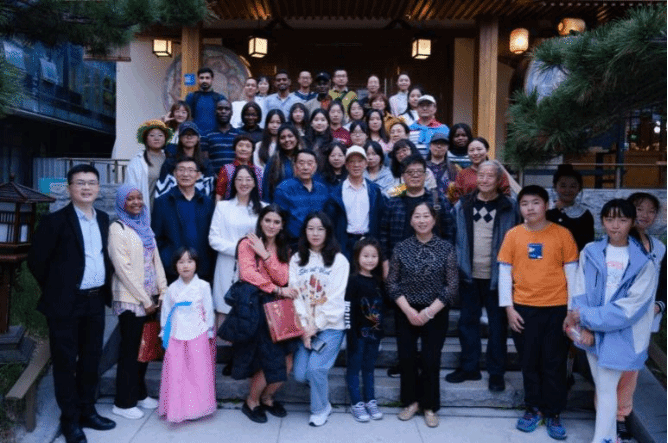
At the beginning of the event, Mr. Chen Yunhua, a bamboo weaving artist, introduced the audience the origin and significance of bamboo weaving, which can be traced back to ancient China thousands of years ago. Due to the widespread distribution of abundant bamboo resources in Chinese history, people have discovered the flexibility and durability of bamboo and began to utilize bamboo for weaving creations. Using different weaving techniques such as interweaving, interweaving, folding, etc., bamboo is woven into various shapes of art or practical crafts.
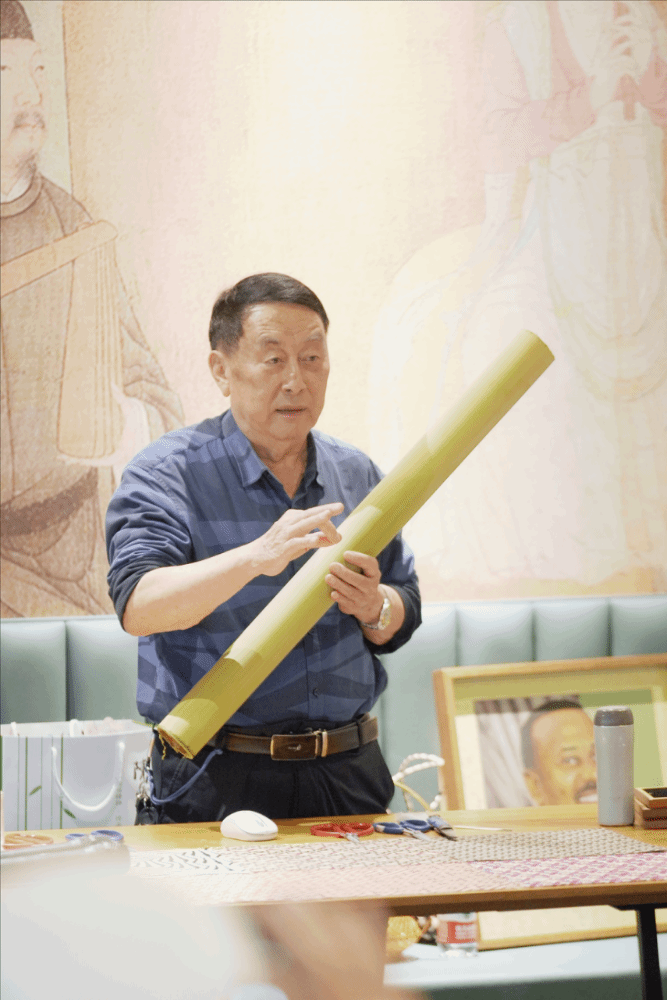
Mr. Chen Yunhua emphasized that bamboo weaving, as a representative of traditional Chinese handicrafts, carries rich cultural connotations and national spirit. Bamboo weaving is a handicraft that requires patience and skill, and it requires artists to go through repeated refinements and efforts before they can create exquisite works. The art of bamboo weaving embodies the combination of labor and wisdom, and requires both the inspiration and creativity of the artists, as well as their exquisite handcraft skills and familiarity with the materials. Mr. Chen Yunhua shared his love for the art of bamboo weaving and his dedication to its inheritance, which aroused the audience’s admiration. Afterwards, Mr. Chen Yunhua showed the audience the exquisite bamboo weaving works,allowing people to appreciate the unique charm of bamboo weaving art. Teachers and students in the audience stopped to watch, take photos, and marveled at these exquisite artworks.
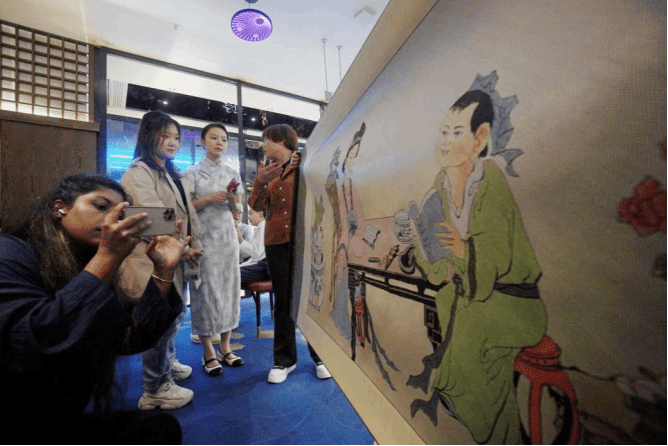
Mr. Liu Xiaobo then further introduced the development history and cultural connotation of the art of bamboo weaving. There are a wide variety of bamboo weaving works, including baskets, boxes, pen holders, flower vessels, fans and so on. These works are not only practical, but also demonstrate the creativity and skill of bamboo weaving artists. Elaborate patterns, motifs and structures can often be seen in traditional bamboo weaving works, reflecting the Chinese people’s understanding and pursuit of nature and life.
Bamboo weaving has also become a unique cultural symbol, representing the essence and wisdom of traditional Chinese culture. For example, during the Chengdu Universiade, bamboo crafts became the accompanying gifts for many foreign athletes. The small gift that contains the integration of nature and life, and the innovation of tradition and fashion. In recent years, with people’s attention to traditional culture and the protection of intangible cultural heritage, the art of bamboo weaving has received more attention and inheritance. Some bamboo weaving inheritors are committed to combining traditional skills with modern design to create more innovative and fashionable works, injecting new vitality and charm into the art of bamboo weaving. Mr. Liu Xiaobo conveyed his love and respect for bamboo weaving to the participants through explanations and cases.
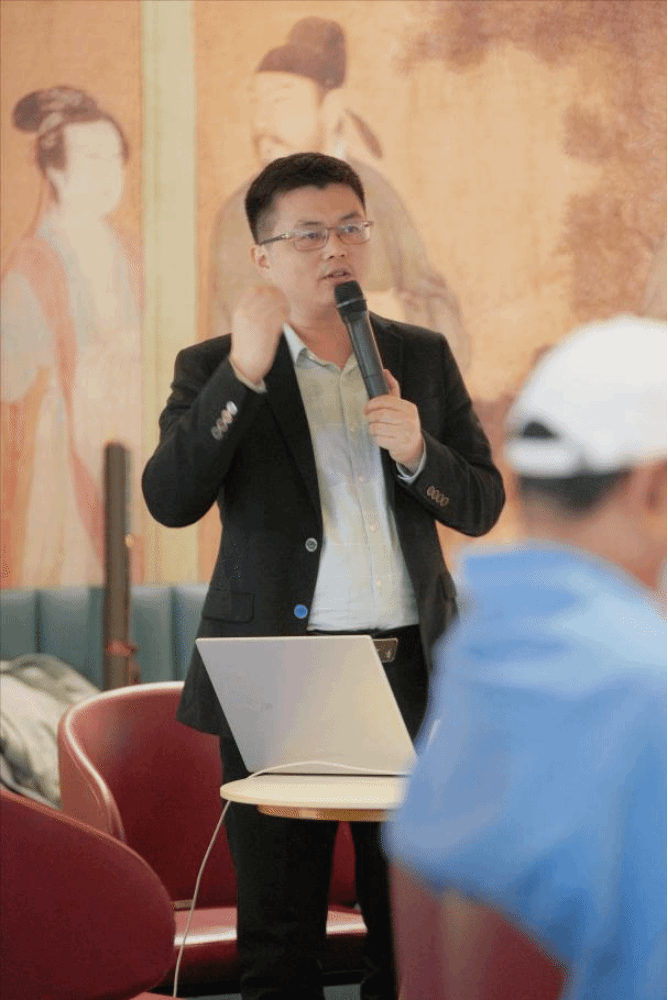
Afterwards, all participants began to explore the creative activity of bamboo weaving art firsthand. At the event site, four bamboo weaving experience areas were set up, where participants could personally create bamboo weaving works. Chen Yunhua, Liu Xiaobo, Zhang Baozhen, and Li Yonghe, these four bamboo weaving teachers patiently guided and taught participants basic bamboo weaving skills and methods. and all the teachers and students were involved in creative bamboo weaving handmade works such as the bamboo weaving rabbits, bamboo weaving small fish and bamboo weaving roses. Participants enthusiastically explored the mysteries of bamboo weaving with great interest, forming a strong atmosphere of learning and friendly communication.

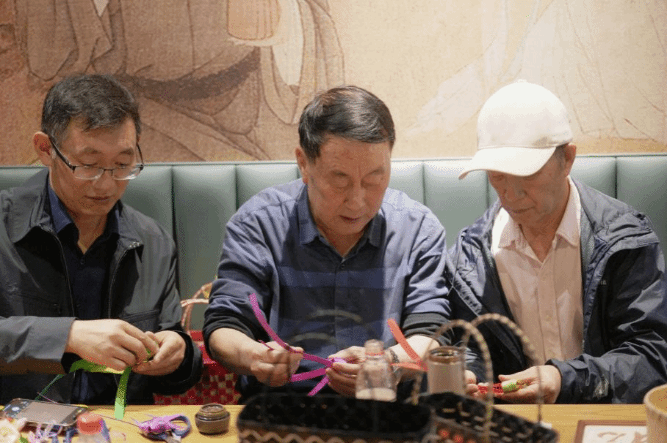
In addition, an exhibition area was set up at the event, displaying a series of exquisite bamboo weaving artworks an intangible cultural relics. Visitors could appreciate the details and craftsmanship of these artworks up close, and experience the exquisite and unique aspects of the bamboo weaving art.
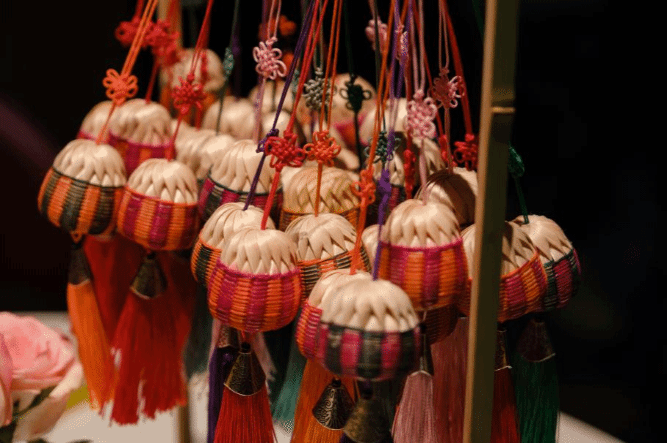
This event is not only a showcase and experience of bamboo weaving art, but also a part of the Chinese culture experience project for international students at SWJTU. After experiencing this bamboo weaving activity, MD ZAHIDUL ALAM, a postgraduate from SWJTU, felt the charm and fun of bamboo weaving art, he mentioned, “Before attending this event, I had no idea about using bamboo to create various objects. However, the teachers showed us how to extract thin and light bamboo pieces and create beautiful works with specific techniques. He showed mesmerizing pictures of beautifully crafted items made from bamboo, and as the Professor explained, my passion for bamboo art grew. We gathered in a wonderful environment full of cultural atmosphere. The teachers were friendly and kind, and we had a pleasant time. We took pictures to commemorate the experience. I sincerely hope to participate in similar projects in the future.” The project aims to provide international students with the opportunity to learn about and experience traditional Chinese culture, deepening their understanding and identification with Chinese culture. Through bamboo weaving, a representative traditional handicraft, the international students not only learned a unique artistic skill, but also experienced the charm and profoundness of Chinese culture. This event not only provided a rare cultural exchange platform for international students, but also made a positive contribution to the inheritance and development of the intangible cultural heritage art of bamboo weaving. Participants have expressed that through this activity, they have a deeper understanding of the bamboo weaving art, and appreciate and respect Chinese traditional culture more.
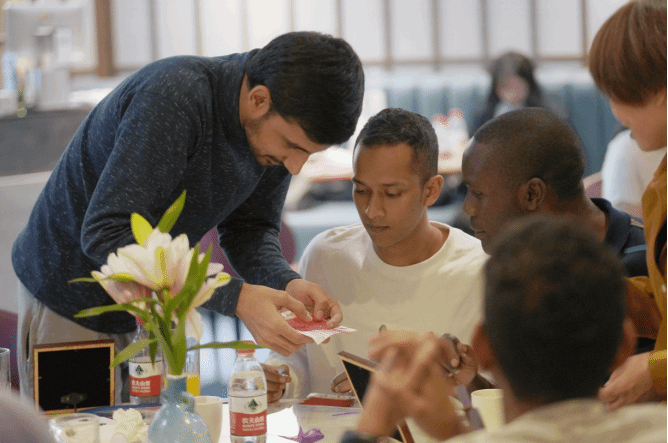
The success of the Chinese Culture Experience Project reflects the importance and support of the School of International Education of SWJTU for international students’ cultural exchanges, and the program not only broadens the horizons of international students, but also promotes the friendship and exchanges between students from different countries. Such activities not only help to cultivate international students’ cross-cultural awareness and communication skills, but also provide them with a more colorful experience in their study and life in China.
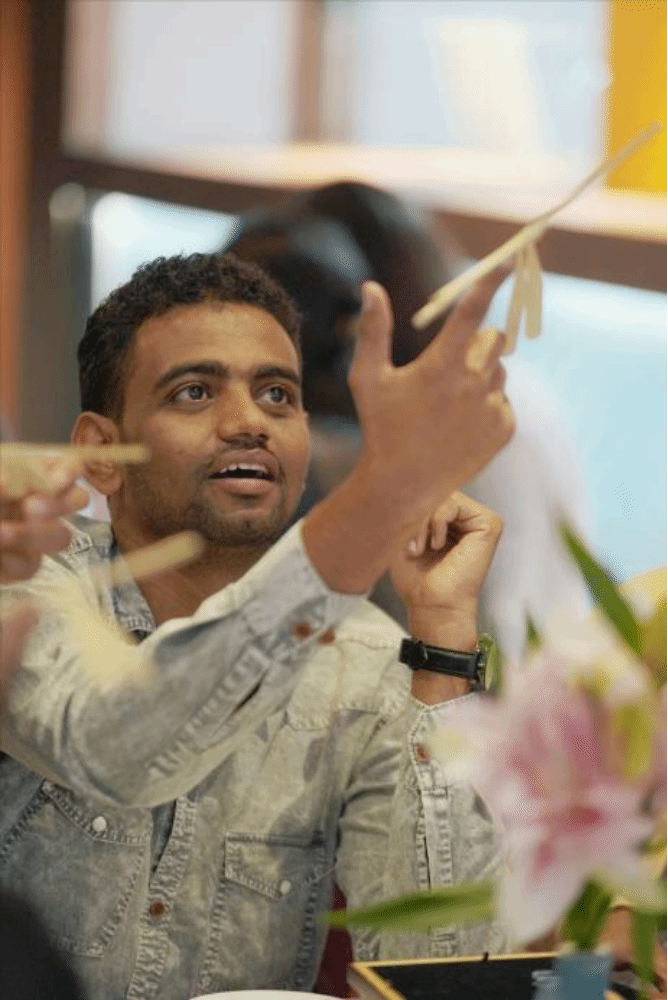
The inheritance and promotion of the intangible cultural heritage art of bamboo weaving is an important part of the protection and promotion of traditional Chinese culture. Through similar activities, we can enable more people understand and love the art of bamboo weaving, providing a broader stage for its inheritance and development. In the future, SWJTU will continue to hold similar cultural experience projects to provide more opportunities for international students to understand and experience traditional Chinese culture. Through such activities, SWJTU will further promote cultural exchanges, foster mutual understanding and friendship between international and Chinese students, and contribute to the creation of a more inclusive environment for cultural exchanges.
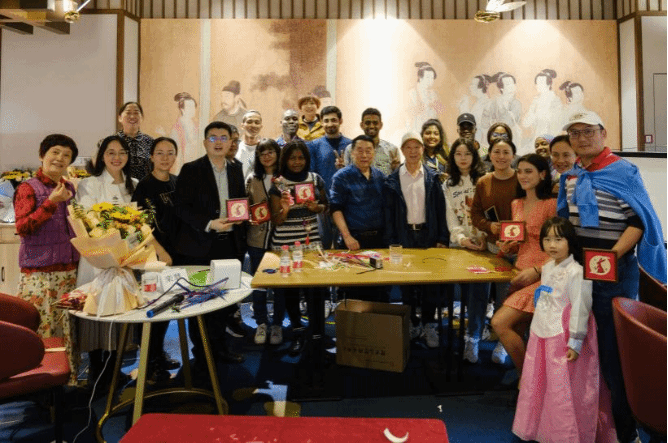
Author: Liu Xinman
Reviewed by: Luan Hui